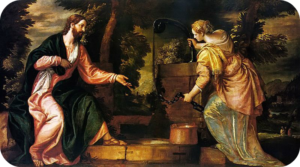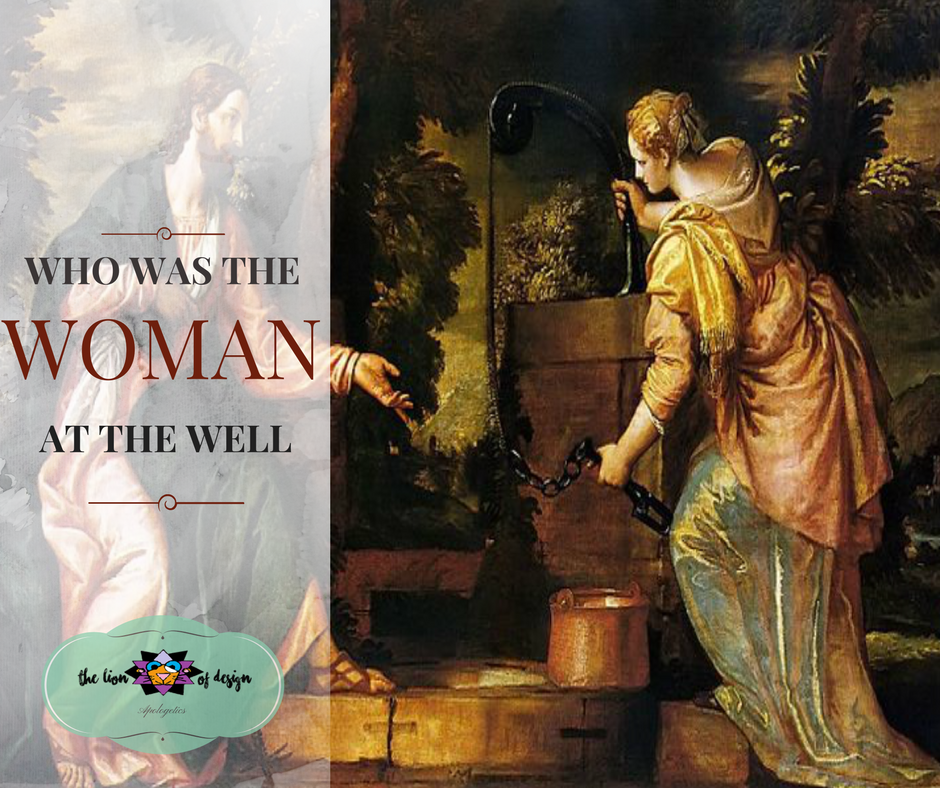I have long been baffled by the biblical story of the Samaritan woman at the well. How are we to interpret this strange encounter between Jesus and a Gentile woman – alone at a well, in which he confronts her about her personal love life? Yet, knowing that these unusual accounts often have a depth of hidden meaning that require further study and research to truly uncover and understand, I dug deeper and was certainly not let down by this one.
In John 4, Jesus travels through Samaria and rests at Jacob’s well. There he meets a Samaritan woman around noon and asks her for a drink of water. The woman is surprised that a Jewish man would ask her for a drink of water. Jesus continues to intrigue her as he speaks of living water that he is able to supply.
The most shocking and revelatory lines spoken however, are those through which the woman recognizes Jesus as a prophet. In John 17-18 Jesus confirms that she does not have a husband, saying “You are right in saying, ‘I have no husband’; for you have had five husbands, and he whom you now have is not your husband.” When Jesus speaks these words, the woman does not get mad, but rather she says “I can see that you are a prophet.”
This is a pretty bold statement to say of someone who could have heard this news about her from anyone in the town, especially since the Samaritans did not believe in the prophets of the Jews. They did however believe the promise of Moses in Deuteronomy 18:15, which states that God will raise up a prophet like Moses. The only problem with this promise is that the prophet will be raised up from among the Israelites.
She immediately makes a distinction between her ancestors and his, saying that hers worshiped on the mountain (Mount Perazim – idolaters – worshipers of Baal) and that his claim Jerusalem as the place of worship. The Samaritan woman’s words are an inspired act of faith. The only prophet Jesus could be is the promised one who speaks the words of God (Deut 18:18). The woman’s heart is open and she believes.

Jesus and the Samaritan Woman by Paolo Veronese
What is the significance of the well?
In the Old Testament, the well is used as a meeting place for a man to discover his future wife. Abraham sent his servant to find a wife for his son Issac. The servant prayed and waited by a well where it was confirmed that Rebekah was to be the wife of Issac. The servant asked Rebekah for a drink of water, to which she complied, giving him and his camels water (Gen 24:12-21).
Jacob met his wife Rachel, who was a shepherdess, at a well where she came to water her father’s sheep (Gen 29).
When Moses fled from Pharaoh to Midian, he sat by a well where he met his wife Zipporah (Ex 2:15-21).
How does she know he is a prophet?
There are two words for husband in the Hebrew language, ishi and baal. The first is the husband of a covenant and the second is a husband who is the master of a slave. In Hosea 2:16, God says to Israel “you will call me, ‘My husband,’ and no longer will you call me, ‘My Ba’al.’ For I will remove the names of the Ba’als from her mouth, and they shall be mentioned by name no more. And I will make for you a covenant on that day…And I will betroth you to me for ever; I will betroth you to me in righteousness and in justice, in steadfast love, and mercy. I will betroth you to me in faithfulness; and you shall know the Lord.”
In 2 Kings 17 the King of Assyria brings five different nations into the cities of Samaria, instead of the people of Israel. These five nations bring their five Ba’als, or false gods, and place them in the Samaritan shrines. Thus, the Samaritans have been wedded to five husbands of slavery and idolatry instead of the Lord.
Jesus says to the Samaritan woman that the one she is currently with (Jesus) is not her husband. WOAH! This perspective changes the whole meaning of the text, much like the book of Hosea, which hides the relationship of God and Israel in the guise of a husband and unfaithful wife. Jesus is the one she and all of Samaria are to be wedded in a covenanted relationship.
Why her?
The Samaritan woman comes to the well at noon, which is the hottest part of the day. She does not come in the early morning or late afternoon when many will be at the well. This may be an indication that she is perhaps poor or cast out from society. However, we must also remember that in John 4:30, when the Samaritan woman tells the people in town that she has met the Messiah, “They came out of the town and made their way toward him.” There was no question or delay in following her to him. This line speaks for itself of her credibility.
Jesus has a way of revealing himself to those who are alone, unclean, sick, sinners, lowly (poor, women) and calls them to new life. In this way, he confirms to a Samaritan woman alone at Jacob’s Well at noon that he is the promised Messiah of Moses.
Christ and the Church: A Model for Marriage
Kimberly Cook
Writer, Podcaster, Mother, & Catholic Apologist. Meet Kimberly



